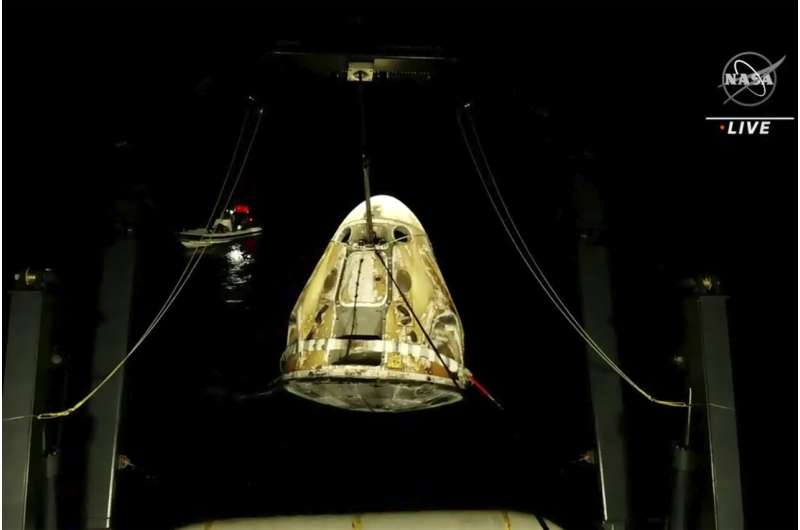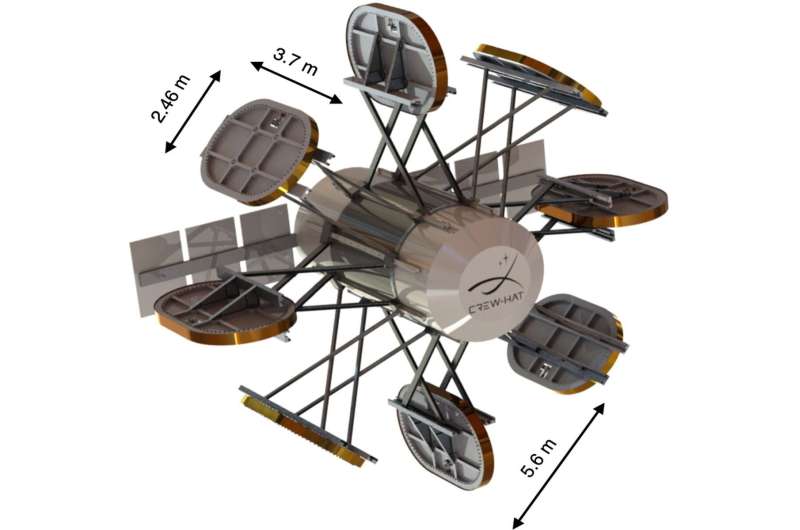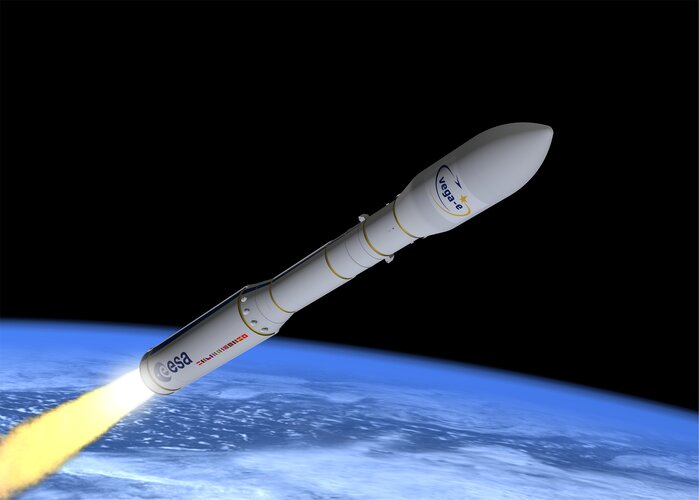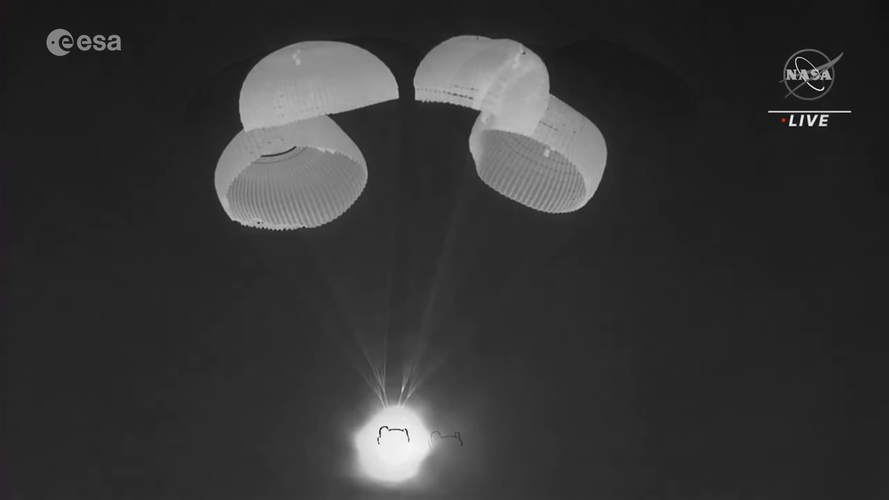
Copernical Team
SpaceX brings 4 astronauts home, then launches 53 satellites

SpaceX brought four astronauts home with a midnight splashdown in the Gulf of Mexico on Friday, capping the busiest month yet for Elon Musk's taxi service.
A magnetic bubble could protect astronauts from dangerous space radiation

Humans have long dreamed of setting foot on Mars or beyond, and the advances by companies like SpaceX and Blue Origin means perhaps the dream could be closer than ever to becoming reality. But as it stands now, sending astronauts on long-duration missions to other worlds would be impossible because of the hazardous radiation levels in space, outside of Earth's protective magnetic field.
However, a new concept offers hope on the horizon, and the researchers behind it have received funding from the NASA Innovative Advanced Concepts (NIAC) program to build a prototype. Called CREW HaT, the proposal takes advantage of the latest advances in superconducting magnet technology to effectively shield spacecraft—and the astronauts inside—from harmful space radiation.
"We came up with a novel idea about how to shield spaceships from cosmic radiation and energetic solar radiation," said Dr.
M10 engine test success marks key step toward Vega-E

An innovative new rocket engine that is key to ESA’s strategy for ensuring Europe’s independent access to space has successfully completed its first hot-firing test run. M10 is the first of a new generation of “green” rocket motors tested in Europe, at the new SPTF plant (Space Propulsion Test Facility) built by prime contractor Avio in Sardinia.
Week in images: 02-06 May 2022

Week in images: 02-06 May 2022
Discover our week through the lens
Return highlights | Cosmic Kiss
 Video:
00:01:41
Video:
00:01:41
The Crew Dragon capsule carrying ESA astronaut Matthias Maurer and NASA astronauts Raja Chari, Thomas Marshburn and Kayla Barron home from the International Space Station splashed down off the coast of Florida, USA, on Friday 6 May 2022 at 05:43 BST/06:43 CEST.
Its return marks the end of Crew-3’s almost six-month stay in orbit and the end of Matthias’s first mission, known as Cosmic Kiss.
Crew-3 undocked from the International Space Station in Crew Dragon spacecraft Endurance at 06:20 BST/07:20 CEST Thursday 5 May. When a Crew capsule splashes down, it is met by nearby ships with experts ready
NASA rocket to measure Earth's life-supporting secret: a weak electric field
 Why does Earth support life, while Venus and Mars - and for all we know, any other planet in the universe - do not?
"It's one of the most fundamental questions in all of science: Why are we here? And it's what Endurance is after," said Glyn Collinson, a space scientist at NASA's Goddard Space Flight Center in Greenbelt, Maryland, and principal investigator for NASA's Endurance mission.
Why does Earth support life, while Venus and Mars - and for all we know, any other planet in the universe - do not?
"It's one of the most fundamental questions in all of science: Why are we here? And it's what Endurance is after," said Glyn Collinson, a space scientist at NASA's Goddard Space Flight Center in Greenbelt, Maryland, and principal investigator for NASA's Endurance mission. Crew-3 splashdown
 Image:
Image:
The Crew Dragon capsule carrying ESA astronaut Matthias Maurer and NASA astronauts Raja Chari, Thomas Marshburn and Kayla Barron home from the International Space Station splashed down off the coast of Florida, USA, on Friday 6 May.
Its return marks the end of Crew-3’s almost six-month stay in orbit and the end of Matthias’s first mission, known as Cosmic Kiss.
Crew-3 undocked from the International Space Station in Crew Dragon spacecraft Endurance at 06:20 BST/07:20 CEST Thursday 5 May.
When a Crew capsule splashes down, it is met by nearby ships with experts ready to bring it on board, open the hatch,
Earth from Space: Rhine River, Germany

The Rhine River, the longest river in Germany, is featured in this colourful image captured by the Copernicus Sentinel-2 mission. Along this river lies the city of Bonn: the host of this year’s Living Planet Symposium – one of the largest Earth observation conferences in the world – taking place on 23–27 May 2022.
Crew-3 splashdown | Cosmic Kiss
 Video:
00:02:28
Video:
00:02:28
The Crew Dragon capsule carrying ESA astronaut Matthias Maurer and NASA astronauts Raja Chari, Thomas Marshburn and Kayla Barron home from the International Space Station splashed down off the coast of Florida, USA, on Friday 6 May 2022 at 05:43 BST/06:43 CEST.
Its return marks the end of Crew-3’s almost six-month stay in orbit and the end of Matthias’s first mission, known as Cosmic Kiss.
Crew-3 undocked from the International Space Station in Crew Dragon spacecraft Endurance at 06:20 BST/07:20 CEST Thursday 5 May.
When a Crew capsule splashes down, it is met by nearby ships with experts ready to
SpaceX brings 4 astronauts home with midnight splashdown

SpaceX brought four astronauts home with a midnight splashdown in the Gulf of Mexico on Friday, capping the busiest month yet for Elon Musk's taxi service.




































